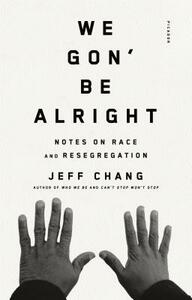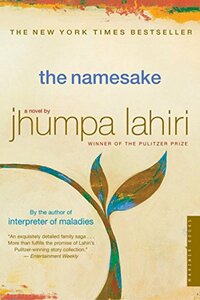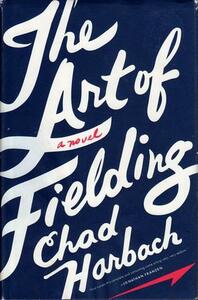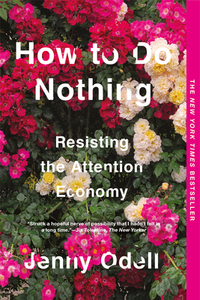Take a photo of a barcode or cover
writesdave's Reviews (364)
challenging
emotional
hopeful
informative
inspiring
reflective
tense
medium-paced
challenging
emotional
hopeful
inspiring
reflective
medium-paced
Plot or Character Driven:
Character
Strong character development:
Yes
Loveable characters:
Yes
Diverse cast of characters:
Yes
Flaws of characters a main focus:
No
Brilliant story about one man's journey through the immigrant experience. The book drips with empathy when you realize the stateless nature of immigration, when you leave behind the only home you've known and attempt to put down roots in a new place with a new language and a new culture. And then your offspring grow up in the "new" culture, knowing no other way but still receiving a healthy dose of the old country.
The main character, growing up American and Bengali, bears the name of his father's favorite Russian novelist, adding one more blind spot to his existence. He's a high achiever who bucks his parents' expectations in many ways, and sets about being his own man above all else. This book features little denouement at the end, but it's a fascinating trip with compelling characters and vivid settings throughout.
I read this for AAPI Heritage Month specifically, but also to broaden my own perspective by reading about the immigrant experience. What can I say, I'm a fairly smart white liberal who seeks out literature that can erase some of those blind spots.
The main character, growing up American and Bengali, bears the name of his father's favorite Russian novelist, adding one more blind spot to his existence. He's a high achiever who bucks his parents' expectations in many ways, and sets about being his own man above all else. This book features little denouement at the end, but it's a fascinating trip with compelling characters and vivid settings throughout.
I read this for AAPI Heritage Month specifically, but also to broaden my own perspective by reading about the immigrant experience. What can I say, I'm a fairly smart white liberal who seeks out literature that can erase some of those blind spots.
challenging
emotional
informative
reflective
medium-paced
I didn't find it the magnum opus of baseball journalism others have anointed it, but it kept my attention and punctured a few myths built up over the years about the Jackie Robinson years. Kahn reported the hell out of it without staying too clinical; I guess he has set the template for reporting on your favorite team. Furthermore, this book presents a realistic view of athletes after the cheering stops—existential crises, different focuses, new beginnings, old paths. All-around enjoyable.
challenging
emotional
lighthearted
reflective
fast-paced
Plot or Character Driven:
Character
Strong character development:
Yes
Loveable characters:
Yes
Diverse cast of characters:
No
Flaws of characters a main focus:
No
Loving Sports When They Don't Love You Back: Dilemmas of the Modern Fan
Jessica Luther, Kavitha Davidson
challenging
emotional
hopeful
informative
reflective
medium-paced
challenging
emotional
informative
reflective
medium-paced
adventurous
challenging
funny
informative
relaxing
medium-paced
In 10th grade social studies, we had a unit on geography, during which our lesson landed us in New York City. My teacher asked if anyone could name a borough, and I rattled off Manhattan, Queens, Brooklyn, the Bronx and Staten Island. He mentioned this to my mom at parent-teacher conferences a couple weeks later, pointing out that no one else in the class knew what a borough was (neither did I, beyond NYC's anointed subdivisions), and my mom nodded knowingly. "Of course, the New York Marathon runs through all five boroughs."
So it makes sense that I spend parts of my days even now reading maps like books, poring over places I want to visit, places I've lived—you know, it doesn't matter. I just love reading maps, whether for planning or edification. I always have, earning the designation as my family's navigator at a young age. Maps help me relate to the world, all of it, near- and far-flung.
Jeopardy legend Ken Jennings apparently suffers from the same affliction, and he plumbed the depths of cartophilia in this book, where he chronicles the National Geographic Society's Geography Bee, catches up with the inventor of geocaching, hangs out in the map rooms at the Library of Congress, and more. I think I love maps, geography and pondering humankind's relationship with the physical world, but I learned I have another level to achieve true mapheadedness from Jennings' entertaining read and the people he found. Cool stuff if you dig this sort of thing, because you are truly not alone.
So it makes sense that I spend parts of my days even now reading maps like books, poring over places I want to visit, places I've lived—you know, it doesn't matter. I just love reading maps, whether for planning or edification. I always have, earning the designation as my family's navigator at a young age. Maps help me relate to the world, all of it, near- and far-flung.
Jeopardy legend Ken Jennings apparently suffers from the same affliction, and he plumbed the depths of cartophilia in this book, where he chronicles the National Geographic Society's Geography Bee, catches up with the inventor of geocaching, hangs out in the map rooms at the Library of Congress, and more. I think I love maps, geography and pondering humankind's relationship with the physical world, but I learned I have another level to achieve true mapheadedness from Jennings' entertaining read and the people he found. Cool stuff if you dig this sort of thing, because you are truly not alone.
Darkness to Sunlight: The Life-Changing Journey of Zaid Abdul-Aziz (Don Smith)
Abdul-Aziz Zaid, Abdul-Aziz Zaid
challenging
emotional
informative
reflective
medium-paced
Interesting, engaging and by-the-numbers autobiography of an NBA and college basketball star. Could’ve used another edit.
challenging
informative
reflective
medium-paced
I learned a lot I didn't know before, and what else can you ask of academic-level non-fiction? This book focuses on the people and less on the issues, which is a good move because anyone reading this book will know the issues and not necessarily the people. It does a great job of filling in some blank spaces in the general knowledge.
Could've used another edit, though.
Could've used another edit, though.
dark
funny
reflective
sad
slow-paced
Plot or Character Driven:
Character
Strong character development:
Yes
Loveable characters:
No
Diverse cast of characters:
No
Flaws of characters a main focus:
Yes
In Black History Month, I apparently chose the most cornpone, whitebread novel ever written, penned by one of the most cornpone, whitebread entertainers of our time. I really wanted to like it because these are my people—I grew up in the rural midwest and even attended high school in the Sodom and Gomorrah of St. Cloud, just down the road from fictitious Lake Wobegon (just so you know, St. Cloud people consider Minneapolis-St. Paul [aka The Cities] a den of iniquity, so it makes sense that most of my friends from high school now live there). But it just pissed me off that these people still live in Lake Wobegon, still have their little idyllic town closed off from civilization, still hold the same worldview with pursed-lipped forced "niceness," and still send their kids to the same schools and churches they attended.
I suppose it's nice to have roots (says a guy with two pages of entries on his résumé and zero ties to where he grew up) and know that some things never change. I heard every word of this book in the unique Central Minnesota accent that my parents insist I picked up during the three-and-a-half years I lived there. And I could imagine walking into the Chatterbox for a coffee and conversation, only to realize I've silenced the room because I'm new there and no one knew my parents or grandparents. I could tell that it was meant to be funny, too, but at no point did I laugh at any of it because these people are just sad. It could have been the untreated depression, too. I don't know.
Also, I'm a product of my times because I know these people voted for trump and the papers from Minneapolis, Chicago, New York and DC sent their reporters on anthropological fact-finding missions to understand these people. Truth to tell, if you've ever left where you've grown up and seen any part of the unfamiliar world, you'll never understand these people. So I wholeheartedly recommend this book five years ago to every big-city newspaper editor who ever assigned a reporter to a diner in flyover country; you could have saved a lot of corporate money in pandering to the electorate.
I suppose it's nice to have roots (says a guy with two pages of entries on his résumé and zero ties to where he grew up) and know that some things never change. I heard every word of this book in the unique Central Minnesota accent that my parents insist I picked up during the three-and-a-half years I lived there. And I could imagine walking into the Chatterbox for a coffee and conversation, only to realize I've silenced the room because I'm new there and no one knew my parents or grandparents. I could tell that it was meant to be funny, too, but at no point did I laugh at any of it because these people are just sad. It could have been the untreated depression, too. I don't know.
Also, I'm a product of my times because I know these people voted for trump and the papers from Minneapolis, Chicago, New York and DC sent their reporters on anthropological fact-finding missions to understand these people. Truth to tell, if you've ever left where you've grown up and seen any part of the unfamiliar world, you'll never understand these people. So I wholeheartedly recommend this book five years ago to every big-city newspaper editor who ever assigned a reporter to a diner in flyover country; you could have saved a lot of corporate money in pandering to the electorate.









